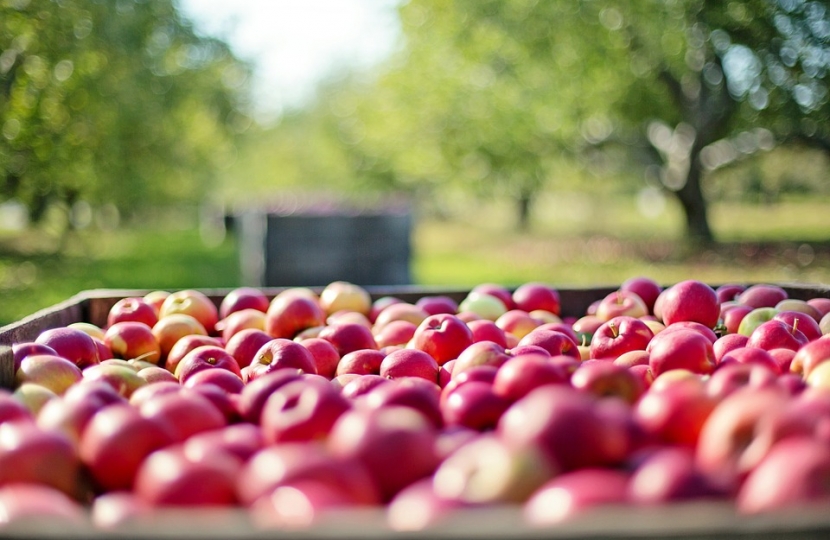
After the UK leaves the European Union on 31st January we will embark on intensive negotiations around our future relationship. For Central Devon one of the most important issues at stake is the future of British farming.
At present, farming subsidies are provided through the EU’s Common Agricultural Policy (CAP) which distributes approximately €50 billion across the EU each year. Its critics, including myself, point to two major failings in the way it operates. Firstly, instead of fully rewarding farmers for the role they play as custodians of our countryside and for being environmentally responsible, it actually incentivises doing damage to our environment because subsidies are provided based on the amount of land which can be farmed. Therefore, a farmer would receive more funding if he or she converted woodland or other wildlife habitats to agricultural land. Secondly, funding is allocated on a per hectare basis, so most of the funding has gone to the largest corporate farming businesses with smaller farmers receiving relatively less. There is a huge opportunity now to create a new era for British farming which addresses these two flaws and I hope that five factors will be considered.
1 – Technology and efficiency. Over the centuries farming has been revolutionised by new technology. With both public and private investment, Britain can lead the world in making farming more efficient. For example, satellite data can help farmers to be more precise regarding fertilisation and advances in robotics have the potential to see our land cultivated by lighter, electric tractors.
2 – Environmental responsibility. Subsidies should consider how farmers provide habitats for plants and wildlife to thrive and how they help to improve water, soil and air quality. I was proud that UK become the first major economy in the world to legislate for net zero carbon emissions by 2050 and this won’t be possible without a major contribution from our agriculture industry.
3 – Animal Welfare. The UK has some of the highest animal welfare standards in the world. Recent legislation has increased the maximum penalties for animal cruelty tenfold, has banned cages or close confinement systems where there is clear scientific evidence that they are detrimental to animal health, and statutory welfare codes have been updated to reflect the latest veterinary advice. This positive trend must continue as we leave the EU.
4 – Food Labelling. Mutual recognition or equivalency of food labelling standards will be needed in a whole range of areas to ensure British farming can compete effectively with our continental neighbours.
5 – Young Blood. It is estimated that the average age of a farmer in the UK is around 60 and that less than 3% of our farmers are under the age of 35. More needs to be done to encourage young blood into the industry, for example through apprenticeships (www.apprenticeshipguide.co.uk/agriculture-apprenticeship).


